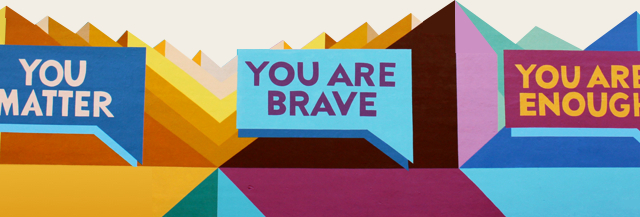Find the tools and resources to take care of your mind, body, and spirit so you can feel mentally and emotionally strong in your daily life.


Managing stress
Managing your stress starts with understanding it. Everyone experiences some level of stress in their life, but not all stress is bad. And everyone deals with it differently.
What causes stress?
Some major causes of stress are personal life, work life, and childhood trauma, also known as adverse childhood experiences (ACEs). Each type of stress can affect someone differently, depending on how severe it is.
How different types of stress affect you
Sometimes stress can be helpful, and other times it can be harmful. It depends on the severity and length of the stress, how your body reacts to it, and sometimes the types of resources and relationships you have to help you cope:
- Positive stress happens in situations like making a new friend or mastering a new skill. These positive experiences produce important hormones to protect your body.
- Tolerable stress can come from hard life events like divorce, a natural disaster, or the death of a loved one. It can trigger the body’s alert system and create bigger health problems if left unmanaged.
- Toxic stress goes beyond your ability or resources to handle it. Severe trauma, neglect, and hostile home and work environments can cause such high levels of stress that they physically damage the body. This can mean a change in your stress response system or even the structure of the brain.
The longer any stress continues, the more at risk your body and brain are for problems later in life, like heart disease, diabetes, substance abuse, and depression. This is especially true when the stress happens during childhood.
Ways to managing stress
Positive and negative stress responses happen to everyone, including children, teens, and adults. It’s hard to avoid, but you can work on techniques to manage your stress. There are several ways you can prepare for and manage stress in your life:
- Understand what stress does to you.
- Identify healthy ways to manage your emotions.
- Practice self-care
- Create supportive relationships.
- Find ways to reduce stress and remain calm.
- Talk to a health care provider.
Unhealthy coping behaviors
Not all coping strategies are healthy, and some may be harmful or dangerous. Drinking alcohol, drug use, and eating too much or too little are ways some people deal with depression or anxiety but can make things worse in the long run. Be aware of the activities you turn to during tough times to protect yourself and to feel better. To help you avoid old habits that may not be serving you well, make a list now of positive ways to support yourself when stress spikes again. For more resources to learn about healthier coping techniques, visit our Support Center.
Managing your mental health
How to build resilience
Managing stress
Practicing self-care
Assessing how you are feeling





